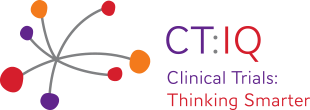Showcasing the Australian experience to guide researchers and Human Research Ethics Committees
CT:IQ stakeholders identified eConsent as an area of importance for the facilitation of clinical trials in Australia. In 2019, CT:IQ partnered with Chrysalis Advisory and undertook an investigation of stakeholder opinions about the benefits, risks and critical success factors for eConsent implementation leading to a report. Read the full report.
A summary of this report has recently been published as a perspective in the MJA.
CT:IQ stakeholders have subsequently identified the need for use cases to illustrate successful implementation of eConsent that can guide those seeking to develop and implement eConsent. This serves two key purposes:
1. To provide useful examples and access to resources for researchers to help develop their own use of digital platforms, and
2. To demonstrate that the use of eConsent is acceptable to HRECs and institutions and should be treated no differently to standard consent processes.
CT:IQ was pleased to partner again with Chrysalis Advisory to develop a library of use cases to demonstrate what has been achieved around Australia. We encourage researchers to reach out to the researchers themselves to learn from their experience. CT:IQ encourages researchers to work with Consumers (see toolkit) and to engage with HRECs early to ensure that the consent process is fit-for-purpose and achieves the intent of providing information in a mutually respectful manner to deliver a valid consent to participate in research. International guidance documents on eConsent are also available from the Food and Drug Administration and TransCelerate Biopharma.
Use Cases library
Additional examples coming soon
 | Australian Genomics Health Alliance - Enhancing communication with participants through use of eConsent and dynamic consent |
 | Use of video animations in clinical consent - Outcomes of a randomised trial of video animations to provide information for patients undergoing skin surgery |
 | Paediatric Asthma Re-admissions Study - Use of eConsent to recruit participants after a hospital visit for an Acute Asthma attack |
 | Epworth Healthcare Using Telehealth to manage rehabilitation after joint replacement surgery |
 | Faces of Angelman Syndrome The Global Angelman Syndrome Registry collects data on individuals with AS through a series of online surveys |
 | University of Tasmania - Use of a multimedia consent process with stakeholder groups in Tasmania and the Northern Territory |
